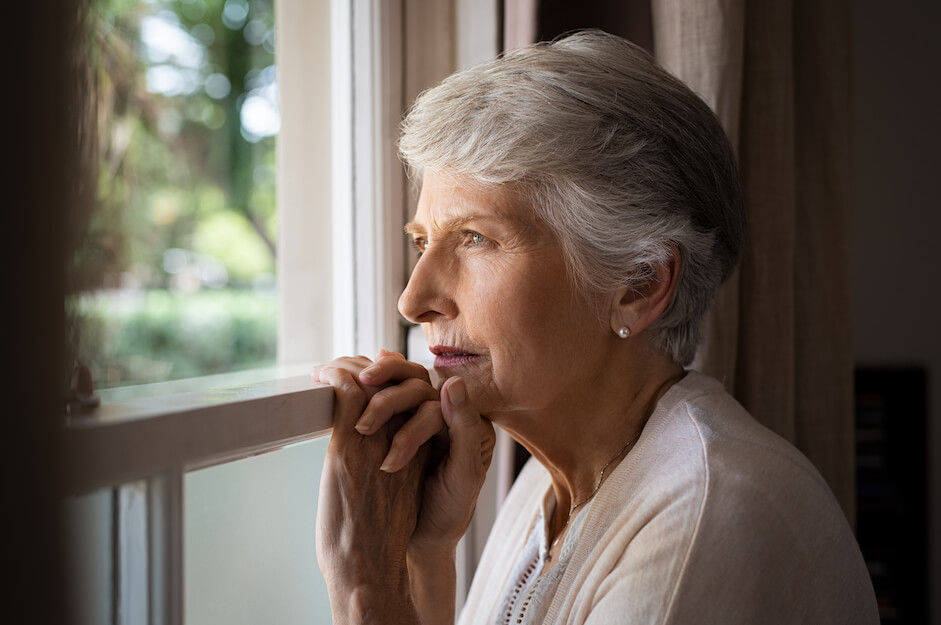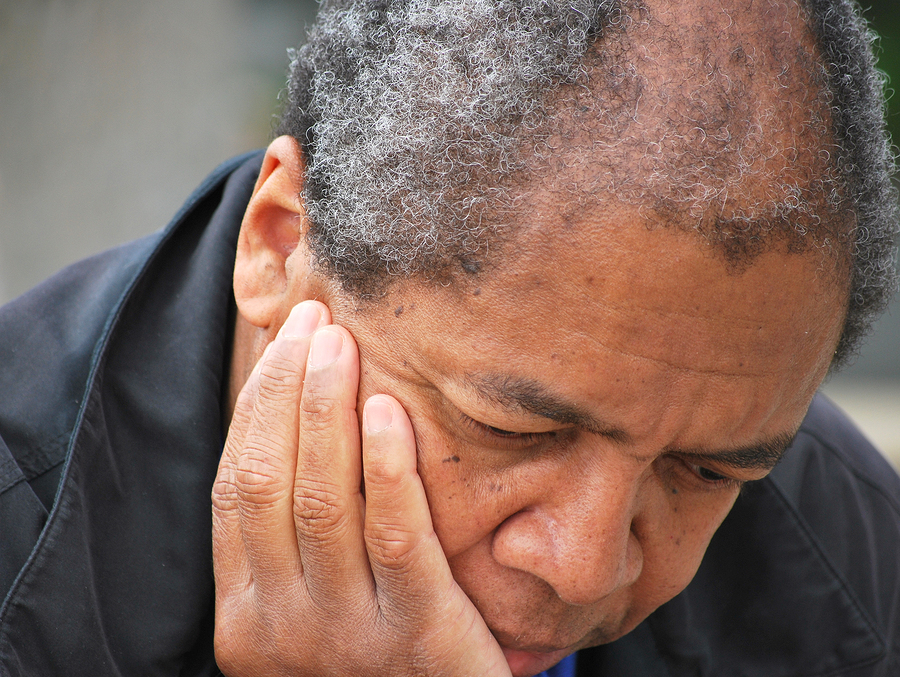
5 Signs of Depression in Seniors
Signs of depression can vary from person to person, making depression particularly challenging to recognize. Depression in seniors can be especially difficult to notice as many think it is a normal part of aging, which is not that case.
The Springs at Simpsonville knows that depression in seniors is difficult to recognize or address. We want to provide you with information regarding depression, and signs to look for if you are concerned about the senior in your life.
Sign 1: Increased Anxiety
Though depression comes in many shapes and forms, there are some more common signs of depression, including increased anxiety. If your loved one is experiencing anxiety, it could look like the following:
- Restlessness, nervousness, or feeling tense (This can primarily happen during social interactions, but it is not exclusive to these.)
- Increased sweating
- Rapid heart rate and/or breathing
- Trembling or twitching
- Difficulty focusing or thinking clearly
Though feelings of anxiety are not exclusive to depression, when accompanied by other symptoms, they can be a sign of depression.
Sign 2: Fatigue or Sleep Issues
 An individual dealing with depression can sleep for 8+ hours a night and wake up feeling just as tired as they were before they went to sleep. On the opposite side, others dealing with depression may develop insomnia; according to WebMD, the two are often hand-in-hand. If you notice your loved one is having difficulty sleeping, sleeping more than usual, or a combination of the two, this may be a sign of a deeper issue.
An individual dealing with depression can sleep for 8+ hours a night and wake up feeling just as tired as they were before they went to sleep. On the opposite side, others dealing with depression may develop insomnia; according to WebMD, the two are often hand-in-hand. If you notice your loved one is having difficulty sleeping, sleeping more than usual, or a combination of the two, this may be a sign of a deeper issue.
Sign 3: Lack of Enthusiasm or Interest
Another sign of depression may be a lack of enthusiasm or interest in hobbies or activities that a person previously enjoyed. This lack of enthusiasm is an important sign to pay attention to, especially if your loved one lives alone, as this sign can be more easily overlooked.
Sign 4: Drastic Weight Shift
Depending on how your loved one handles stress, the shift can vary from gaining to losing weight. As we age, a change in weight can be attributed to several factors, including not getting the appropriate amount of calories every day (loss), or an adverse side effect from medication (gain). This isn’t necessarily a telltale sign of depression, but again, when combined with other symptoms, it can be an indicator.
Sign 5: Anger and Mood Shifts
Anger, especially misplaced anger, can also be a sign of depression in seniors. While someone without depression can more easily control their emotions, someone with depression is likely to experience mood shifts. Depression can strike at different times and show in different ways; someone with depression could be perfectly happy one moment and then experience a mood shift the next. Mood shifts, especially in older adults, can be a symptom of a variety of conditions, so it’s important to speak with a healthcare professional regarding any concerns you may have.
If you believe your loved one is demonstrating signs of depression, we recommend talking to them and be open and honest. Even though it is an uncomfortable conversation, seeking medical help may be a solution that benefits your loved one in the long run.
We invite you to visit The Springs at Simpsonville website for additional resources regarding aging or senior care to help you along your senior living journey.




